Fitness
Mum who went blind after op to remove brain tumour became depressed and pre-diabetic before rediscovering running

A mum-of-two who was diagnosed with a brain tumour after her vision suddenly deteriorated, ending up completely blind and in a deep depression after surgery, has since rediscovered her love for running and now has a “reason for getting out of bed in the morning”.
Judith Namaganda, 52, a medically retired shop assistant who lives in Southwark, London, had been short-sighted for most of her adult life, but in lockdown, her vision went completely blurry.
The mum-of-two to Samuel, 29, and Ivanna, 10, went to her scheduled eye test at Specsavers, in September 2020, and was referred to St Thomas’ Hospital.
Around eight months later she finally had an appointment, and two weeks after that, she had an MRI scan, which sadly revealed she had a large brain tumour which was causing her eyesight to deteriorate.
Judith was put on an emergency waiting list for surgery, and two months later, surgeons removed the tumour and discovered it was non-cancerous and benign.
Before surgery, Judith claims she was told there was a chance she could lose her eyesight but it was “unlikely” due to her age and health.
However, when she woke up, she had lost all her vision. Doctors reassured her that her sight could come back, but it never has.
This sudden change to her day-to-day life made Judith feel “frustrated, depressed and stressed” and in 2022 she was diagnosed as pre-diabetic as she was not leaving the house or prioritising her health.

She was determined to reverse this diagnosis, and ended up joining her local Park Run, with the help of running guides. Her mental health has now improved, she is no longer pre-diabetic and she is even planning on running her first 10k in July 2024.
Judith tearfully told PA Real Life: “I think blindness is one of the worst things that can happen to someone.
“Because you can’t see, you can’t even trust yourself to do something.
“I’m just afraid to run by myself in case I bump into a tree, and I’m terrified of getting mugged or something when I’m out of the house and I can’t see other people.
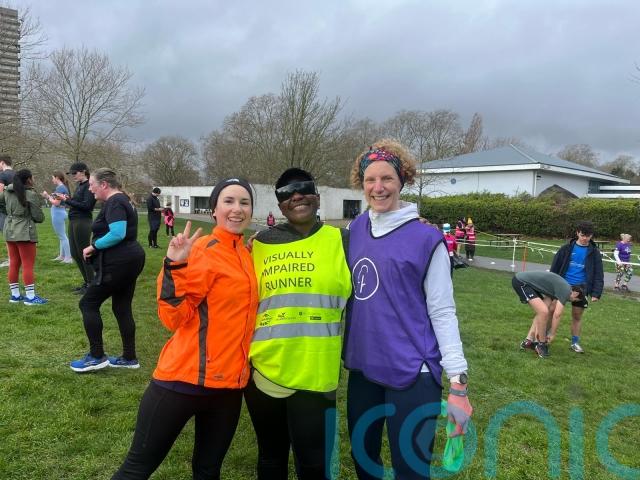
“The charities and the running have been amazing, it has given me a reason for getting out of bed in the morning.”
Judith had always been short-sighted but in 2020 her eyesight dramatically worsened – almost everything became blurry.
As she was wary about going to Specsavers in the pandemic, Judith waited for her scheduled eye test appointment in September 2020 to raise her concerns.
When visiting the Surrey Quays branch of Specsavers, her optician gave her a routine eye test and also asked about her other symptoms – concerned, they referred her to St Thomas’ Hospital.
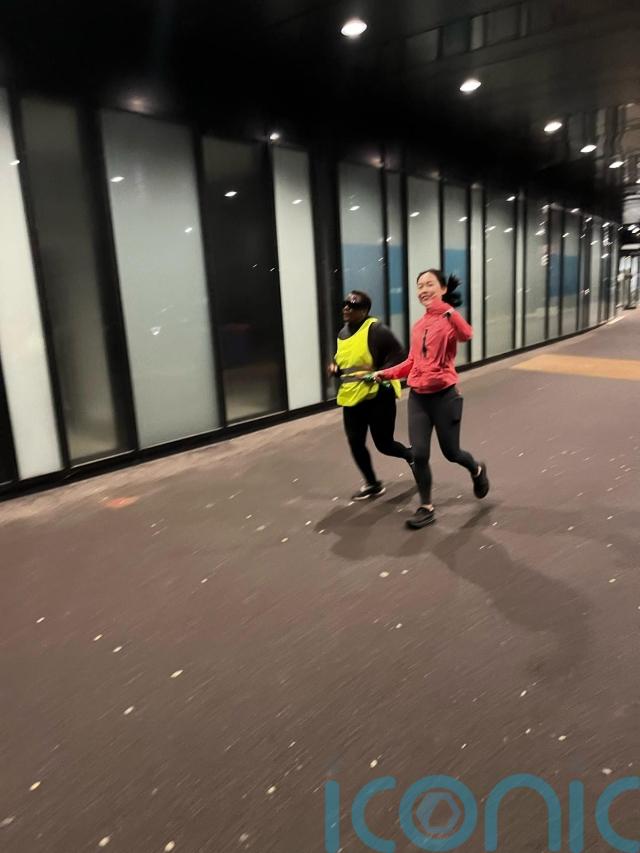
In May 2021, Judith finally had an appointment at the hospital to have an MRI scan – and it sadly revealed she had a large brain tumour which had been pressing on her optic nerve in her right eye, and was causing her eyesight to deteriorate.
Doctors explained to Judith that there was a chance she could lose her eyesight but it was “unlikely”.
“Of course it was devastating… they said because I had just turned 50, I’m not a smoker, I don’t drink heavily, I was a low risk,” Judith explained.
“They said everything will be fine and if I had any loss of vision it may be in my right eye.”
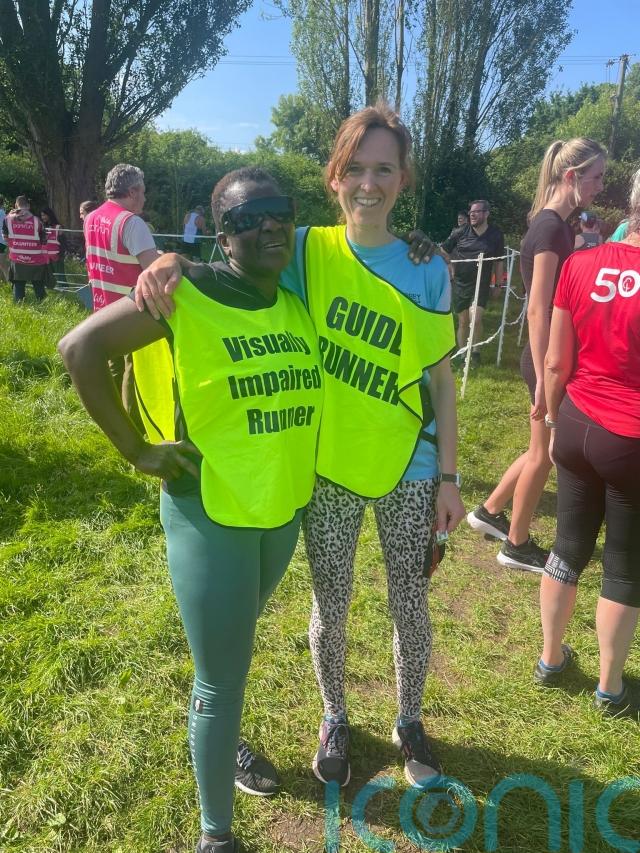
Judith was put on an emergency waiting list to have an operation to remove the tumour at King’s College Hospital – within two months she had the surgery, which was successful, removing the majority of the tumour, which was revealed to be benign and non-cancerous.
But, when Judith woke up she had no vision at all.
Judith said that doctors explained to her that there was a chance she could lose her eyesight but it was “unlikely” because of her age and the fact she does not smoke.
She said: “After the operation, when I came back to my senses, I was like, ‘I can’t see, I can’t see’ and was panicking.”
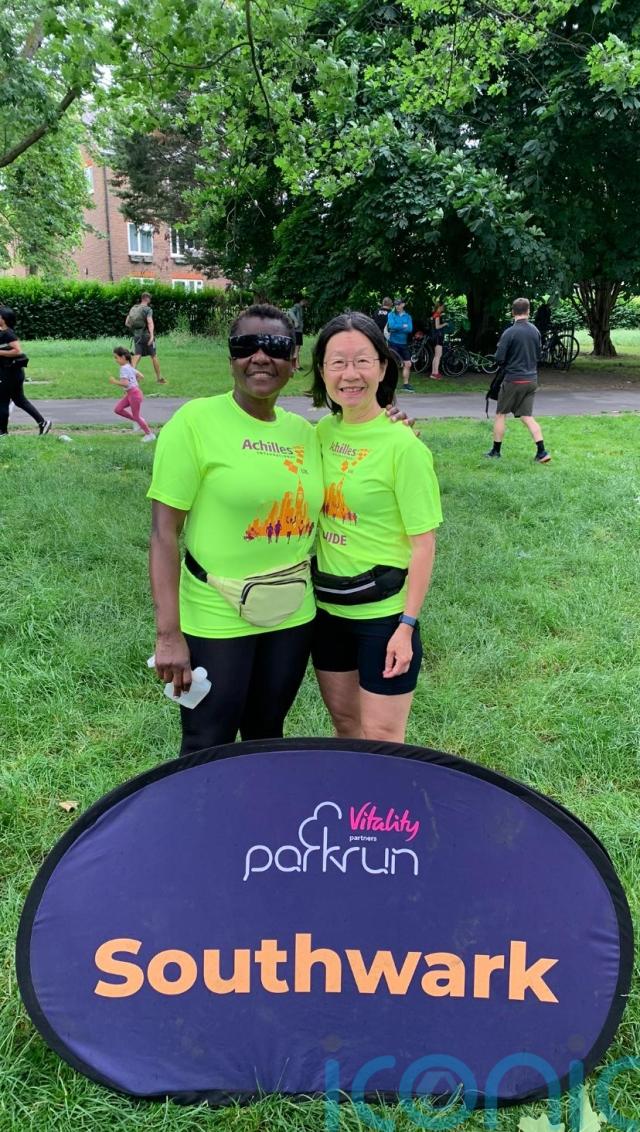
Judith was reassured by doctors that her vision could come back over time, but it has not, and she has since complained to the hospital.
“The hospital investigated it and said everything was OK but said if I’m not satisfied I can write to the surgeon,” Judith explained.
She has also spoken to a lawyer, who believes Specsavers may be more at fault, because of the eight-month wait to get a hospital appointment, which they believe could have been lowered if they did an emergency referral.
Since the operation, Judith has had to adjust to a life which forced her to become medically retired and lose almost all independence.
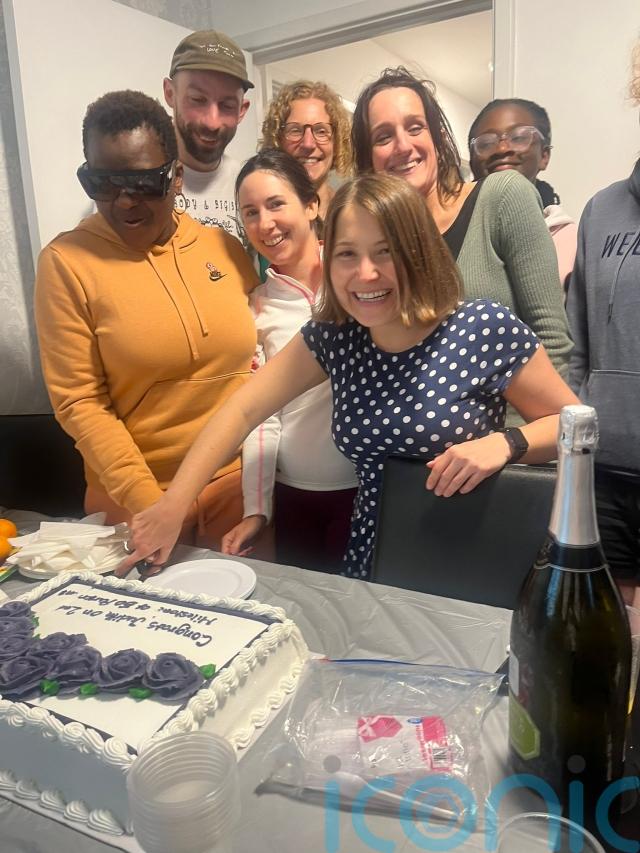
“It was really dramatic for the first one-and-a-half years, I didn’t want to do anything, I was just failing… so I just depended on people like my son, my daughter and I started having a carer,” she said.
“I had people help me adjust – I kept bumping into things, in a house I have lived in for years and years.
“There are challenges every day – I can’t read messages, answer the phone easily.
“I was frustrated, depressed and stressed.”
This had a detrimental impact on Judith’s mental health, and she ended up staying at home, stopping exercising, and drinking more alcohol than she had ever done before.
Judith said: “I was putting on weight and drinking to cope, I started asking my son to stock alcohol which I never did before.”
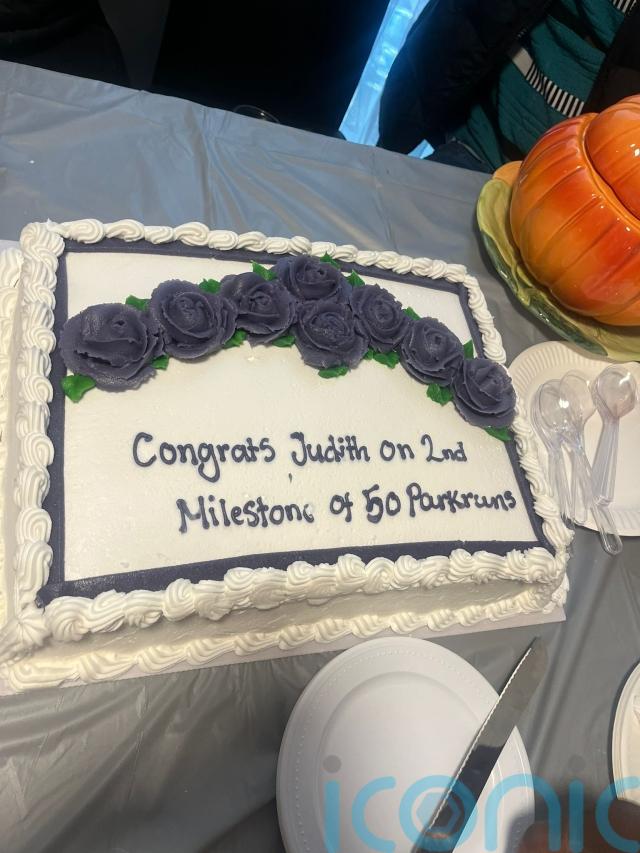
It got to the point where, when having a routine blood test in 2022, it was discovered that Judith was pre-diabetic.
This gave her the push she needed to get back into exercise, and she slowly rediscovered her love for running through attending her local Park Run, with the help of volunteer guides.
“It has really helped me, and I have a group of people that help me and guide me – we’re in a WhatsApp group and one of them will help me once in the week or twice in the week, and on the Park Run,” Judith explained.
Judith has now reversed her pre-diabetes, and has participated in Park Run a whopping 50 times since June 2023 – she is now preparing to run a 10k in July.
Judith said: “We are taking it slowly… I used to just run for an hour at a time, but realised that was only 3k, so I’ve built it up…I’m sure I’ll feel emotional when I do the 10k.”
Looking back on her experiences, she said: “I appreciate life more, it’s shown me to do what you can, when you can and to live life to the fullest when you can, but also to appreciate people around me and the charities that help people in my situation.”
A spokesperson from Specsavers said: “We are very sorry to hear about Miss Namaganda’s diagnosis and would like to wish her well with any ongoing treatment.
“We’re taking this matter seriously and due to an ongoing investigation we are unable to comment any further.”
A spokesperson from King’s College Hospital NHS Foundation Trust said: “We can confirm that Ms Namaganda underwent emergency surgery at King’s to remove a brain tumour.
“Our staff were in touch with her in the post-operative period, and if she would find it helpful, we are happy to arrange a further appointment for Ms Namaganda with our clinical teams to discuss the treatment she underwent.”
General entries have sold out for the London 10K but charity places are still available. To find out more, visit: thelondon10k.com.










